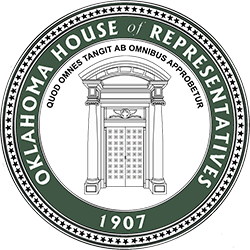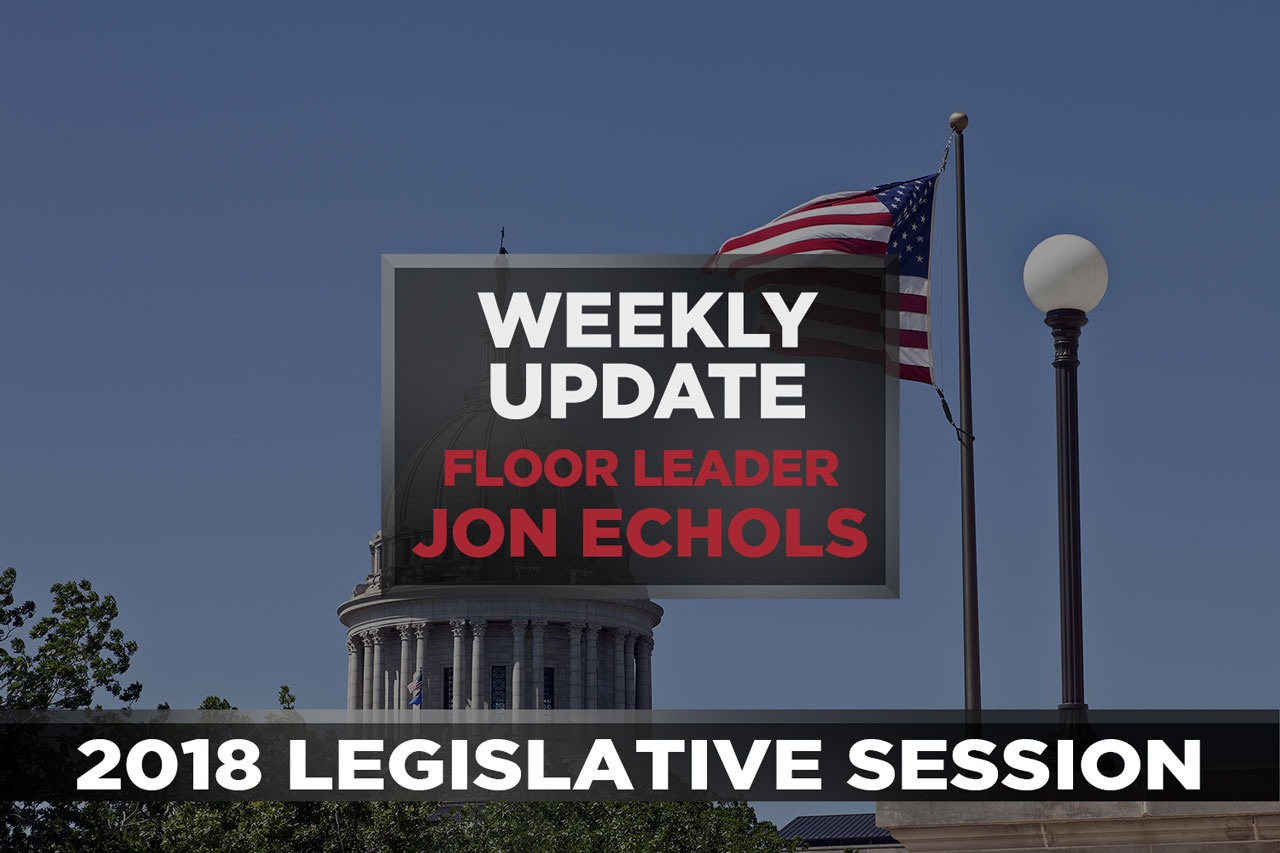
House Passes Bond to Complete Final Phase of Capitol Restoration
The House of Representatives this week passed a plan to complete the restoration of the state Capitol building.
House Bill 3168, authored by House Speaker Jeffrey W. Hickman (R-Fairview), would allow the state to issue up to $125 million in bonds to complete the Capitol Restoration Project, which began in 2015 and is scheduled to be finished by 2022.
Under House Bill 3168, the bond would not be let until 2018 when other state bonds are paid off and those revenues will be directed to the Capitol bonds meaning no new state dollars will be needed as a current $350 million infrastructure bond funded by tobacco tax revenues will expire.
House Passes Bipartisan Bill Providing Insurance Mandate for Autism Coverage
The House of Representatives passed a bipartisan measure this week that would require health insurers to cover autism treatment for children.
House Bill 2962, by state Rep. Jason Nelson and co-authored by a bipartisan coalition of more than 30 House Republicans and Democrats, would require a health benefit plan offered in Oklahoma to provide coverage for the screening, diagnosis and treatment of an autism spectrum disorder in children. The bill would limit the yearly maximum benefit to $25,000, but would place no limits on number of visits.
The Legislature last considered an autism insurance reform bill in 2008. Nelson said since then 43 states have implemented some form of reform to health plans to provide treatment for autism disorders.
House Bill 2962 passed by a vote of 76-20 and now heads to the Senate for consideration.
House Passes Smart on Crime Reform Bills
A slate of bills aimed at improving public safety and reducing Oklahoma’s overcrowded prisons by reducing mandatory minimum sentences for some drug crimes, giving prosecutors more discretion in filing charges and expanding eligibility for drug courts easily passed out of the House of Representatives this week.
The four bills were authored by state Rep. Pam Peterson and emerged from the Oklahoma Justice Reform Steering Committee, established last year to develop ideas for reforming the way the state deals with non-violent offenders, drug abusers and criminals with mental health issues.
House Bill 2472 would give district attorneys discretion to file any crime as a misdemeanor, except those requiring a sentence of 85 percent or more upon conviction, after considering the nature of the offense, the age, background and criminal history of the defendant, the character and rehabilitative needs of the defendant and the best interests of justice.
House Bill 2479 would adjust mandatory minimum and maximum sentences for felony drug possession. Under current law, mandatory minimum and maximum sentences are 2-10 years for a first offense, 4-20 years for a second offense and 4-20 years for a third offense. This bill would adjust those sentences to 0-5 years for a first offense, 0-10 years for a second offense and 4-15 years for a third offense.
House Bill 2751 would increase the threshold from $500 to $1000 to be charged with a felony property crime.
House Bill 2753 would expand eligibility for drug courts and community sentencing to more defendants. Under current law, a defendant must have a previous felony conviction to be eligible for those alternative sentencing programs.
The members of the Oklahoma Justice Reform Steering Committee included Gov. Mary Fallin, House Speaker Jeff Hickman, Senate President Pro-Tempore Brian Bingman, Attorney General Scott Pruitt and the Director of the Oklahoma Department of Corrections and the Commissioner of the Oklahoma Department of Mental Health and Substance Abuse Services. The subcommittee included numerous district attorneys and judges along with Oklahoma County Public Defender Bob Ravitz and Adam Luck, state director of Right On Crime.
House Bill 2472 passed by a vote of 63-27, House Bill 2749 passed by a vote of 76-15, House Bill 2751 passed by a vote of 80-8 and House Bill 2753 passed by a vote of 90-0. All four bills will now proceed to the Senate for consideration.
House approves constitutional amendment to nix language cited in Ten Commandments monument ruling
The Oklahoma House of Representatives today voted to allow Oklahomans to amend the state constitution and eliminate a portion of law cited in the ruling against the display of a Ten Commandments monument on Oklahoma State Capitol grounds.
House Joint Resolution 1062, by state Rep. Randy Grau, removes a section of the Oklahoma State Constitution that provides that “public money or property cannot be used directly or indirectly for any sect, church, denomination, or system of religion.”
The proposed constitutional amendment was approved by a vote of 86-10 and now proceeds to the Oklahoma Senate for consideration. If approved by the Senate, a state question will be submitted to the Secretary of State to be placed on the November 2016 ballot.
Measure Would Expand Employment Opportunities for Former Felons
A bill that would allow convicted felons to seek employment in fields requiring a license passed out of the House of Representatives this week.
House bill 2585, by state Rep. Mark Lepak, would prohibit a person from being disqualified from a trade or occupation requiring a license solely because of a previous felony conviction – unless that conviction is directly related to the trade or occupation.
The bill includes a method for determining whether a prior conviction is directly related to the trade or occupation for which the license is sought. The measure also requires a licensing board to notify an applicant of a license denial or application disqualification and provides for an appeals process.
House Bill 2585 passed out of the House by a vote of 59-31 and now moves to the Senate for consideration.
House approves legislation to add nursing homes to rural areas
Legislation allowing rural hospitals that manage nursing homes to become owners passed the Oklahoma House of Representatives this week by a vote of 86-0.
House Bill 2549, by Rep. Doug Cox, R-Grove, modifies the definition of the term “owner” in the Nursing Home Care Act to include a facility’s “managing entity.” The measure is intended to allow for a greater number of nursing homes in rural areas.
Cox said many times family members must consider placing a loved one in a nursing home far from home because of the limited number of beds in rural areas. His legislation makes it easier for rural hospitals that manage nursing homes to become owners of the facilities.
Cox has practiced emergency medicine at a rural hospital and is a member of numerous medical organizations. He serves as chairman of the House Committee on Public Health.

